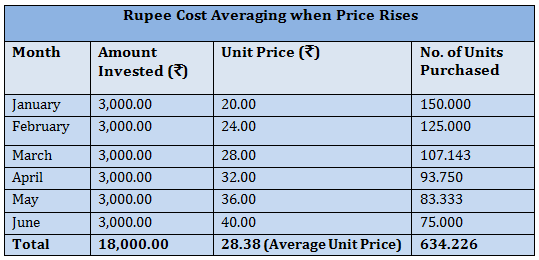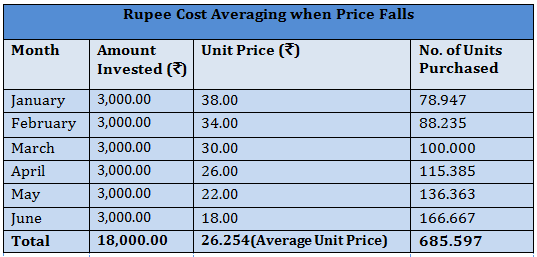Systematic Investment Plan: A Checklist of Myths and Facts

As investors we often get deterred away from the right investment choices because we hear the popular opinion concerning the instrument. Popular opinions are mostly formed on half baked truth. Hence, they exist and function on a foundation of myths which have been popularized to such a large degree that they have almost become the truth. However, they are still myths and they can only be cleared by facts. There are certain myths surrounding Systematic Investment Planning (SIP) as well. While advisors and experts try their best to do away with such notions, these myths persists and still fan public imagination. Hence, this is yet another attempt to debunk such myths and bring SIP closer to the facts that are meant to define such a form of Investment.
Are SIP Mutual Funds Different from that of Lump Sum Mutual Funds
There is no special kind of fund called SIP mutual funds. SIPs are a form of investment and not a type investment. Hence, one scheme can have many modes of investment: lump sum, STP, SWP and Systematic Investment Planning (SIP). An investor doing lump sum investment might pay र 60,000 one time. On the other hand, another investor might invest the same र 60,000 using SIP mode by paying र6,000 monthly over 12 months. Hence, this mode of payment allows investors who cannot or do not wish to pay lump sums for investments.
Are SIPs for Small Investors only
The aim of SIP is to instill a habit of investment and allow investors with varied investment appetite and financial backgrounds to invest in a staggered manner. SIP creates a healthy investment environment where one can make a small investment of र 500 per month or pay a large sum of र 50,000 per month. There is no limit to how much an investor can invest in a month unless the scheme or regulations specify otherwise. SIP is not for small or big investors. SIP is for those investors who are unable to and/or unwilling to invest lump sums. It allows beginners to get the first taste of its returns and seasoned investor to keep making diligent investment to continue the steady stream of returns. While, a small investor can invest as low as र 100 per month (only few AMCs take र100 per month installment), the High networth individuals can invest in lacs every month. Though there is a limit for the minimum amount, there is no limit for the maximum.
Is Lump sum Investment allowed in a SIP Fund
Investors are often confused about lump sums and SIPs. What if there has been a major cash flow? Do they invest in a new fund? No, you do not have to unless you want to. In the same fund where you keep investing via SIPs, you can also add a lump sum to the same fund while continuing with the SIPs. There is no restriction to the amount you can invest in a fund and the mode of doing the same. The opposite is also applicable as well. If you have already invested a lump sum in a certain fund, you can still start a SIP of any amount in the same fund and in the same account or folio.
Will Heavy Penalty be Levied if I Miss on SIP Dates
The logic behind investments in a fund is when you invest you purchase units of the funds. So if every unit costs र 25 and you invest र 5000 per month you are purchasing 200 units every month. However, if you fail to invest र 5000 in a certain month you simply do not purchase the 200 units. That is all the loss you make as an investor. No additional fines or penalties are levied on you by the Asset Management Companies (AMC).
As a disciplined investor you are expected to pay your monthly installment without fail or maintain sufficient balance on the auto debit date/s or cheque dates. In case you fail to do so you do not have to pay a penny extra to the AMC . Failure to pay for an installment does not imply you are not invested anymore. You should continue investing from the following month. Even if you do not, the accumulated funds will continue to earn returns.
SIPs may Not be Suitable when Markets are Bullish
Any investor with little or no investing knowledge will be quick to tell that you should buy at low prices and sell at high prices to make a profit. While this sounds as a great logic, it has a short term vision of making quick profits. Hence, investors often have a tendency to withdraw from SIPs when the market is rising because they do not wish to keep buying at higher prices. The entire point of investing through Systematic Investment Plan route is to do away with the need to time the market. You do not have to time the market because over a long period of time minor market fluctuations make little or no difference. SIPs work on the principle of rupee cost averaging which states that over a period of time the average cost of buying when markets are rising and falling will not differ to a great degree. From the illustration below we can see two scenarios where the NAVs are rising and falling.

From the above chart you can see that the investor invested the last amount at a NAV of र 40.00, but still his average cost is only र 28.38 even though the NAVs are increasing.

From the above chart you can see that the Average cost is only र 26.254 against the starting cost (1st Installment) of र 38.00 and so on.
Are SIPs meant for short term period only
The answer is Yes and No, both. Yes because, if for you the short term is 24 – 36 months then you can get benefit of rupee cost averaging by investing in a disciplined manner and fulfill your short term needs. For the short term horizon you can choose Short term Debt funds, Liquid funds or even debt oriented hybrid funds. However, if you continue to invest regularly in equity funds or balanced funds through this route, for a long period of time and remain invested, then you can greatly benefit from the power of compounding. The power of compounding can do wonders for these kinds of investments and help you in achieving your long term financial goals, Like – Retirement, Children Education, Marriage, A foreign holiday etc.
Conclusion
Opinions often fan public imagination. However, the degree of truth in it has to be examined before it can be accepted as facts. Myths work the same way. They have perpetrated along with the facts for as long as the facts came into existence, making it difficult to shift the fact from the myth. Systematic Investment Plans have been suffering the same blow in the hands of the myths making it a hurdle for investors to invest without worrying about the various rumours that are floating. Instead of paying heed to the disaster stories which only work to emphasize the truth try looking for some successful stories then your rational mind will be able to sift the myth from the reality. Hence, bringing you a step closer to unearthing the facts; hiding in plain sight. Contact a Financial Advisor, write your long terms goals and check your risk profile and get set with your equity investments through the Systematic Investment Plan route.
Mutual Fund Investments are subject to market risk, read all scheme related documents carefully.
Queries
-
What is the benefit of mutual fund STP
Aug 29, 2019
-
How much to invest to meet target amount of Rs 2 Crores
Aug 26, 2019
-
Can I achieve my financial goals with my current mutual fund investments
Aug 24, 2019
-
Can you tell me return of various indices
Aug 19, 2019
-
What would be the post tax return on different investments
Aug 18, 2019
-
Which Principal Mutual Fund scheme will be suitable for my retirement corpus
Aug 16, 2019
-
What is the minimum holding period for availing NCD interest
Aug 4, 2019
Top Performing Mutual Funds
Recommended Reading
Fund News
-
Zerodha Mutual Fund launches Zerodha Nifty Short Duration G Sec Index Fund
Dec 26, 2025 by Advisorkhoj Team
-
Groww Mutual Fund launches Groww Nifty Chemicals ETF
Dec 26, 2025 by Advisorkhoj Team
-
DSP Mutual Fund launches DSP Nifty Next 50 ETF
Dec 19, 2025 by Advisorkhoj Team
-
DSP Mutual Fund launches DSP Nifty 500 Index Fund
Dec 19, 2025 by Advisorkhoj Team
-
Kotak Mahindra Mutual Fund launches Kotak Nifty Next 50 ETF
Dec 18, 2025 by Advisorkhoj Team














